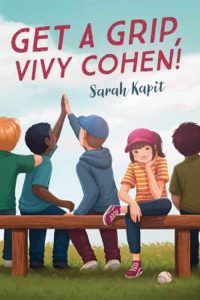 Welcome to the Pitch Wars Workshops with some of our amazing past and 2020 mentors. From a lottery drawing, we selected writers to receive a query and first page critique from one of our mentors. We’ll be posting some of the critiques leading up to the Pitch Wars submission window. Our hope is that these samples will help you in shining up your query and first page.
Welcome to the Pitch Wars Workshops with some of our amazing past and 2020 mentors. From a lottery drawing, we selected writers to receive a query and first page critique from one of our mentors. We’ll be posting some of the critiques leading up to the Pitch Wars submission window. Our hope is that these samples will help you in shining up your query and first page.
We appreciate our mentors for generously dedicating their time to do the critiques. If you have something encouraging to add, feel free to comment below. Please keep all comments tasteful. Our comments are set to moderate, and we will delete any inappropriate or hurtful ones before approving them.
Next up we have …
Pitch Wars Mentor Sarah Kapit …
 Sarah Kapit is a writer of middle-grade fiction. Currently she lives with her family in Bellevue, Washington. Her first novel, GET A GRIP, VIVY COHEN!, was published by Dial Books for Young Readers (Penguin Random House) in 2020. VIVY COHEN received starred reviews from Booklist, School/Library Journal, and Kirkus. Another novel, THE MANY MYSTERIES OF THE FINKEL FAMILY, will be published in March of 2021. She co-mentored PitchWars in 2019. In her past life, Sarah earned a PhD in History from UCLA.
Sarah Kapit is a writer of middle-grade fiction. Currently she lives with her family in Bellevue, Washington. Her first novel, GET A GRIP, VIVY COHEN!, was published by Dial Books for Young Readers (Penguin Random House) in 2020. VIVY COHEN received starred reviews from Booklist, School/Library Journal, and Kirkus. Another novel, THE MANY MYSTERIES OF THE FINKEL FAMILY, will be published in March of 2021. She co-mentored PitchWars in 2019. In her past life, Sarah earned a PhD in History from UCLA.
Sarah’s recent release…
 Get a Grip, Vivy Cohen!
Get a Grip, Vivy Cohen!
DIAL BOOKS FOR YOUNG READERS/PENGUIN RANDOM HOUSE
Vivy Cohen yearns to throw her knuckleball in a real game. But her mother is convinced that an autistic girl won’t be able to handle the pressures of a full baseball season. When a Little League Coach spots Vivy practicing with her brother in the park, she gets her chance. She makes a deal with Mom: Vivy can give baseball a try.
But pitching for a real team isn’t exactly easy. During her first season, Vivy must deal with nerves and bullies. And after a line drive smacks Vivy straight in the forehead, keeping Mom on board with Vivy’s baseball dreams proves just as tough as keeping the ball in the strike zone.
Through all of her travails, Vivy writes letters to the one person she can be honest with: MLB pitcher VJ Capello. Then, VJ writes back.
Amazon I Barnes & Noble I Books a Million I IndieBound I Third Place Books
Sarah’s critique . . .
Category: Middle Grade, Horror
Query:
Dear Pitch Wars Mentor:
Combining elements of Small Spaces and Scooby Doo, TITLE OF NOVEL is a 40,000 word middle grade horror novel told from multiple points of view. [This is a good opening sentence that conveys all of the critical information. It might be even more effective if you rearranged the information a little so that the title comes first: “TITLE OF NOVEL is a middle-grade horror novel that combines elements of Small Spaces and Scooby Doo.” It’s okay to use more than one sentence for this paragraph.]
Evie is a 3-year-old dog who lives at the pound. The only thing she wants in the whole world? A family to love. [Great job bringing the emotional stakes right away! My only criticism: I am not sure this needs to be in its own paragraph. It disrupts the flow of the query. You want to focus on the main events of the story.]
When Evie is adopted by 11-year-old Rosie, she plans to live happily ever after. [“Happily ever after” is a cliché. Can you express the same sentiment in more original words? If you can show something unique about your voice and Evie’s character, that would be highly effective. What is Evie’s vision of happily ever after?] Instead, she is trapped on a small island in the St. Lawrence River with Rosie’s hostile 12-year-old cousin Fred and a geriatric Collie named Ladybird. Even worse? The island is populated with a handful of ghosts who make it their business to scare the pants off Rosie’s family. [Can you be a little more specific about what the ghosts are doing? Are they trying to scare Rosie’s family off the island entirely? What exactly are they doing that is so scary?]
When Evie is blamed for a ghost initiated accident that nearly costs Rosie her life, she enlists the help of Ladybird to help track and disarm the island’s resident ghosts. [What are the consequences for Evie being blamed for the accident? Is the family threatening to take her back to the pound? Knowing this information would help personalize the stakes.] Evie must work with Ladybird, Rosie and Fred to protect her family and secure her forever home. [Eliminate “forever.” It’s an extra word that veers into a cliché.]
My professional experience has been in the television industry and in communications for several different public institutions. In addition to writing middle grade fiction, I’m also a playwright. Most recently, a public reading of my play Title of Play was made into a podcast thanks to a grant from the Playwrights Guild of Canada.
Thank you for your time and consideration.
Sincerely,
[Overall, this is a strong query that makes me want to read more. I will note that animal protagonists can be a bit of a tough sell to many mentors and agents (although kids love them!) In the interest of widening the pool of interested mentors and agents, I’m going to make a suggestion that may or may not be suitable for your book. Feel free to leave this suggestion if it doesn’t work for you.
Since your book is multiple-POV, it may benefit you to include one of the other POV characters in the query. Some agents and mentors who might otherwise be skeptical of an animal POV story may be more open to it if they know that there are also human POVs. If Rosie or another POV human character figures prominently in the story, you should include her perspective in the query. Why does she want a dog so much? How are the ghosts impacting her and her family? Are there any family conflicts that figure prominently to the story? Adding that human element to the story can be a hook to readers.
Writing a query for a story with two POV characters can be tricky. I suggest looking up examples to inspire you. This is the basic formula:
- Introduce character 1 and what they want.
- Introduce character 2 and what they want.
- Show how the characters need to work together to solve the conflict and achieve their goals.]
First page:
Chapter 1 – Evie
There should be a guidebook on pet adoption, written by dogs.
I should write it. It would be a best seller.
Humans – even the good ones – make some basic mistakes. This is really important stuff. Because who is punished when things go wrongs? Dogs.
I know humans worry about dog beds, toys and house training. Instead, they should follow this basic advice: [There are two instances of the word “basic” within a short period of time. I also feel like there’s a sentence missing. Is Evie saying that dog beds and toys aren’t important? You should explicitly state that.]
RULE #1: Don’t feed us weird stuff
Seriously.
Terry was this Basset Hound in the cage next to me at the pound. He was sent back after two days because the kid at his new house fed him an entire jalapeño and his gut blew up.
Was it his fault he had explosive diarrhea?
No.
Did he get blamed for it and sent back to the pound?
You betcha.
[I never thought I’d say this about anything that involves diarrhea, but I love this. You’re hitting just the right notes for a middle-grade.]
RULE #2: Avoid long cars rides
Even if you don’t feed us weird stuff, this is a dicey proposition. [I’m not sure whether the word “proposition” is entirely appropriate for the voice. It doesn’t fit in with the other, more casual words you’re using in this opening. Do you intend for Evie to be an erudite kind of a dog? If so, then it’s a great word for her. But if that isn’t your intention, consider something else.] We’re so excited to leave our cage, it’s like we have a miniature roller coaster in our stomach. A long, bouncy car ride is not a smart choice. Trust me on this.
RULE #3: Keep us away from ghosts
I mean this just seems obvious.
[This is a strong opening that gives us a great sense of the character’s voice. I might like to see a little more of Evie herself in here—has she had a bad experience in a car or eating something weird? That would help us to develop a connection to her as an individual, not just as a generic dog. I want to know about her specific experiences and personality.
My other reaction to this is that it feels very light-hearted for a horror book, even for middle-grade horror. From reading this I get the impression that this book is going to make me laugh, but not necessarily scare me. I think that’s a major strength that you should embrace. However, you may want to reconsider the horror categorization if the entire book takes this tone. There are many examples of contemporary fantasy middle-grade stories that have ghosts. You aren’t locked into the horror genre just because this is a ghost story.]